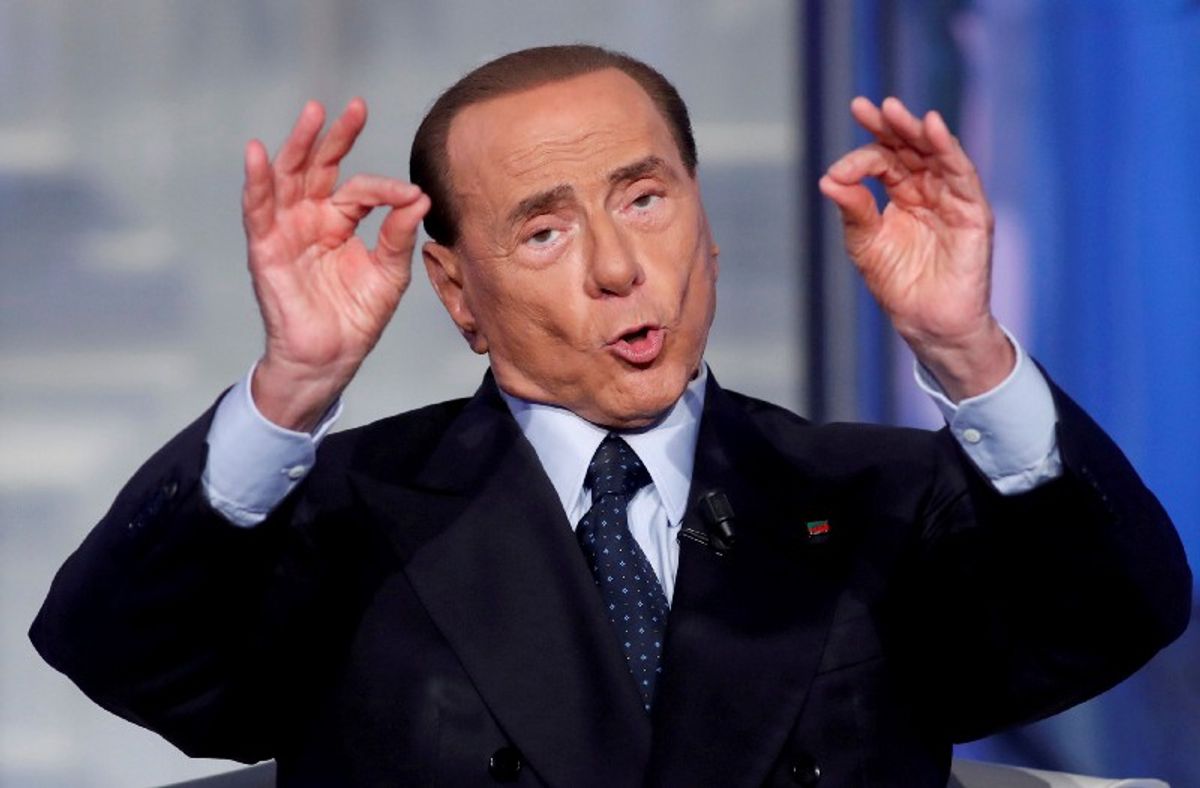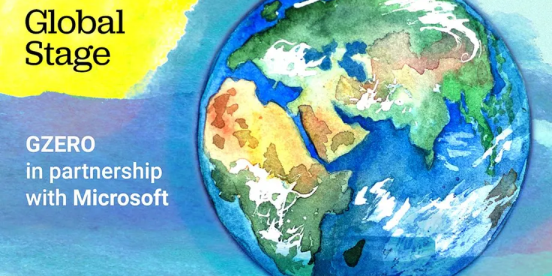We have updated our Privacy Policy and Terms of Use for Eurasia Group and its affiliates, including GZERO Media, to clarify the types of data we collect, how we collect it, how we use data and with whom we share data. By using our website you consent to our Terms and Conditions and Privacy Policy, including the transfer of your personal data to the United States from your country of residence, and our use of cookies described in our Cookie Policy.

Your Friday author has always been cynical about cynicism, the tool that lazy people use to appear sophisticated. But it’s hard not to smirk at the world’s five big votes scheduled for the spring. See for yourself.
Italy — On March 4, Italians head to the polls for parliamentary elections unlikely to produce a result that pleases most of those who vote. No party will win a majority, beginning a prolonged process of coalition bargaining in a country where many MPs switch parties after the votes are cast.
Maybe Silvio Berlusconi’s center-right Forza Italia will join the far-right Northern League and some smaller conservative parties to form a government. Berlusconi can’t serve as prime minister because he’s been convicted of tax fraud and of dyeing his hair with black shoe polish. Maybe the center-left Democratic Party will lead another unstable coalition, the fourth in seven years, with Forza Italia. Maybe, though not likely, the populist Five Star Movement (5SM) can form a government with the far right. Or maybe talks will collapse and Italy will need another round of elections. True connoisseurs of political cynicism will be closely watching the performance of the new “Free Flights to Italy” party.
Whatever the outcome, Italy’s large public debt and its frustration with other EU members who aren’t helping ease a still-large refugee burden will continue. The best that can be said: Economic growth continues to improve, and even the 5SM has stopped talking up a referendum on exiting the Eurozone.
Germany — Speaking of unhappy coalitions, we’ll learn the outcome on March 4 of the vote-by-mail balloting of 460,000-plus members of Germany’s SPD, who must choose whether their center-left party should join another government led by Chancellor Angela Merkel and the center-right CDU-CSU. Six months after elections in which both major parties took big losses from previous totals, it all comes down to an in-or-out vote for the SPD. This one, unlike similar votes in the past, is no sure thing, particularly with the party’s youth wing actively campaigning for “no.” If SPD voters reject the deal their leaders have cut with Merkel, Germany will have new elections, or Merkel will try to lead a minority government.
The choice is simple, if cynical: Join a Merkel-led government that many SPD leaders have pledged to oppose in exchange for leadership of the foreign and finance ministries or face new elections after the party’s worst drubbing since World War II. Merkel’s party won just 33% of the vote last September, but the SPD won a mere 20.5% — and its popularity has since fallen to 16%, now behind even the far-right Alternative for Deutschland. As in France, traditional parties of the center-right and center-left are struggling to cope with rising public demand for change.
True fans of hard-core electoral cynicism will ignore Italy and Germany to focus on upcoming votes in Venezuela, Egypt, and Russia.
Russia — Vladimir Putin isn’t much worried that he’ll lose his March 18 bid for re-election to Ksenia Sobchak. He’s more worried that he’ll miss his 70/70 target — 70% of the vote with 70% turnout — and that the kids won’t turn out to certify that their president remains cool.
That’s probably why the Russian government hatched a plan to get young voters to compete to win iPads and iPhones by sending in selfies taken at polling stations. (h/t to our friends at Bear Market Brief.) If there’s anything the youngsters like more than iStuff, it’s the selfies.
Other prizes we’d like to see offered:
- A chance to hold President Superman’s cape while he wrestles a slightly drugged bear.
- Two tickets to join the Kremlin watch party for the November US midterm elections. (Bring a date!)
- A chance to fire Prime Minister Dmitri Medvedev on live TV.
Too cynical? I’m not even warmed up yet.
Egypt — On March 26, Egyptians will choose between voting to re-elect President Abdel Fattah al-Sisi, voting for an opponent who isn’t really running to win, and staying home to watch TV. The January arrest of former army chief of staff and credible opponent Sami Anan made clear Egypt’s strongman will leave little to chance. Like Putin, Sisi is worried about low turnout, particularly since Egypt’s opposition will boycott the vote. No worries: Sisi’s government is unlikely to publish credible turnout information anyway.
Anan is far from the only rival pushed out of the race — a former prime minister, a human rights lawyer, and former president Anwar Sadat’s nephew have all been harassed off the ballot. But Anan’s uniform reminds us that Sisi worries less about civilian opposition than about losing his support base within the military. That may eventually happen, if Egypt’s economy and security situation don’t improve. But not in time for next month’s vote. In the meantime, 14 international and Egyptian rights groups accuse the US and EU of “largely unquestioning support for a government presiding over the country’s worst human rights crisis in decades.”
Venezuela — The salsa king of Venezuela, aka President Nicolas Maduro, has decided to stand for re-election on April 22. There are many reasons he’s going to win. His government has made no deal with the opposition, allowing Maduro to change election rules as he goes. There will be no objective international observers to certify Maduro didn’t cheat. And Maduro will cheat — by using the country’s courts to disqualify any legitimately popular opponent, by stuffing the ballot box, or both.
It’s no wonder then that the country’s four largest opposition parties announced this week they’ll boycott the whole show. Henri Falcon, a former Chavista turned controversial opposition figure, says he’s in the race. But though he enjoys a two-to-one lead over Maduro in current polls, there’s no way Maduro will let him win.
In the meantime, conditions inside Venezuela will get even worse. Declining oil production will undermine the value of the country’s only valuable export. Runaway inflation and shortages of basic goods will continue, even for those who have supported Maduro. Sanctions may hasten a default, particularly if the Chinese and Russians decide to stop throwing good money after bad.
That’s why the greatest threat to Maduro in coming months comes not from the still-fragmented opposition but from within the Chavista movement, those with real power to dance him offstage.
